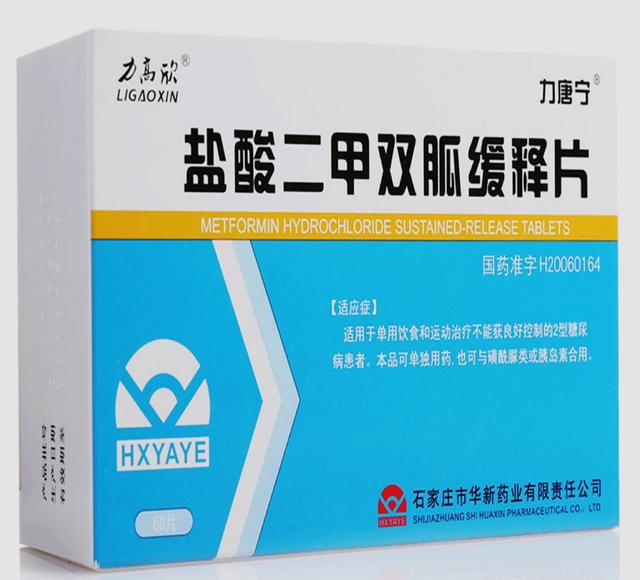What can I do to minimize the side effects of oral hypoglycemic drugs?
Diabetes specialists answer your questions, so pay attention to learn more.
Oral hypoglycemic drugs are the drugs of choice for diabetics at the onset of the disease, and many diabetics will experience one or more or less side effects while taking oral medications, like common GI reactions, skin rashes, etc. Some other patients may experience liver damage, thrombocytopenia, etc.
Side effects of drugs are all the reactions of the drug outside the therapeutic effect are side effects, just like the glucose-lowering drugs we use, its role is to lower sugar, if it appears nausea, abdominal pain, skin rash, etc., then these are its side effects.
Inevitably, a variety of side effects occur during the use of drugs, and the manifestation of these side effects varies from person to person, which is why some people take metformin for ten or so years without any discomfort, while some people eat in a piece of abdominal pain is the same.
With the exclusion of contraindications to drug use, let's look at what side effects are common.
metformin
Metformin is the preferred first-line therapeutic agent recommended in the diabetes treatment guidelines, with a precise glucose-lowering effect and presenting an increasing number of therapeutic effects in the clinic, such as weight reduction, inflammatory response, and cardiovascular protection, etc. However, its main side effects, which can be gastrointestinal, such as nausea, vomiting, abdominal pain, diarrhea, are usually transient. Symptoms will gradually disappear after reducing the dosage or using it for a period of time. Lactic acidosis is very rare, and if it occurs, it should be discontinued.
Symptoms may be reduced with oral hypoglycemic or extended-release preparations, which may be taken with or after meals.
insulinotropic
Insulinotropic agents are divided into two types: sulfonylureas and non-sulfonylureas, and because both stimulate insulin secretion to lower blood sugar, their main side effect is the possibility of hypoglycemia.
In fact, this is a good response, think about it, why do we use drugs, the purpose is to reduce blood sugar, just may be more effective for this drug, so there is a hypoglycemic situation. This situation should be timely to reduce the amount of drugs, try to maintain the use of the smallest effective dose to achieve the best effect of lowering sugar.
It is also important to rule out the causes of hypoglycemia, such as whether the medication was not followed by a timely meal, too much exercise, or the medication was taken incorrectly.
These medications may have the potential to cause elevated liver enzymes, which should be addressed with regular liver function tests during use.
acarbose (loanword)
Glycosidase inhibitors take acarbose as the representative drug, which mainly inhibits the enzyme glycosidase and delays the intestinal absorption of carbohydrates, while exerting a hypoglycemic effect. Food is fermented in the intestines and gas production is increased, then gastrointestinal symptoms such as intestinal flatulence and abdominal distension will occur, which will usually be gradually reduced with the prolongation of the medication.
Edema, mild intestinal obstruction, jaundice, and liver damage may occur and should be closely monitored; the incidence of these conditions is very low and their occurrence requires discontinuation of this drug.
To summarize:These are a few of the more common medications, and the side effects will diminish over time as the medication is used. If a more pronounced side effect situation occurs, discontinue use and consider switching to another treatment option.
Concerned about Dr. Sun talking about sugar, continue to learn more quality health knowledge, help please click on the praise, have questions please leave a message, will reply!
Metformin is white in color, cold in nature and goes to spleen, stomach and liver meridians. Taken for a long time, it causes diarrhea or constipation in spleen deficiency, cold stomach, indigestion, and numbness and dizziness if it affects the liver meridian.
It can be used in combination with the Chinese herbal medicine, Radix Rehmanniae Pills and Mu Xiang Shun Qi Pills, to treat diarrhea or constipation.
Stomach cold indigestion can be accompanied by Xiangsha Nourishing Stomach Pill.
Numbness, dizziness adjuvant Tianma pill or methylcobalamin.
asparagus pill
Treating paralysis caused by insufficiency of the liver and kidneys, which is characterized by contracture of the limbs, numbness of the hands and feet, pain and soreness of the waist and legs.



This question and answer are from the site users, does not represent the position of the site, such as infringement, please contact the administrator to delete.